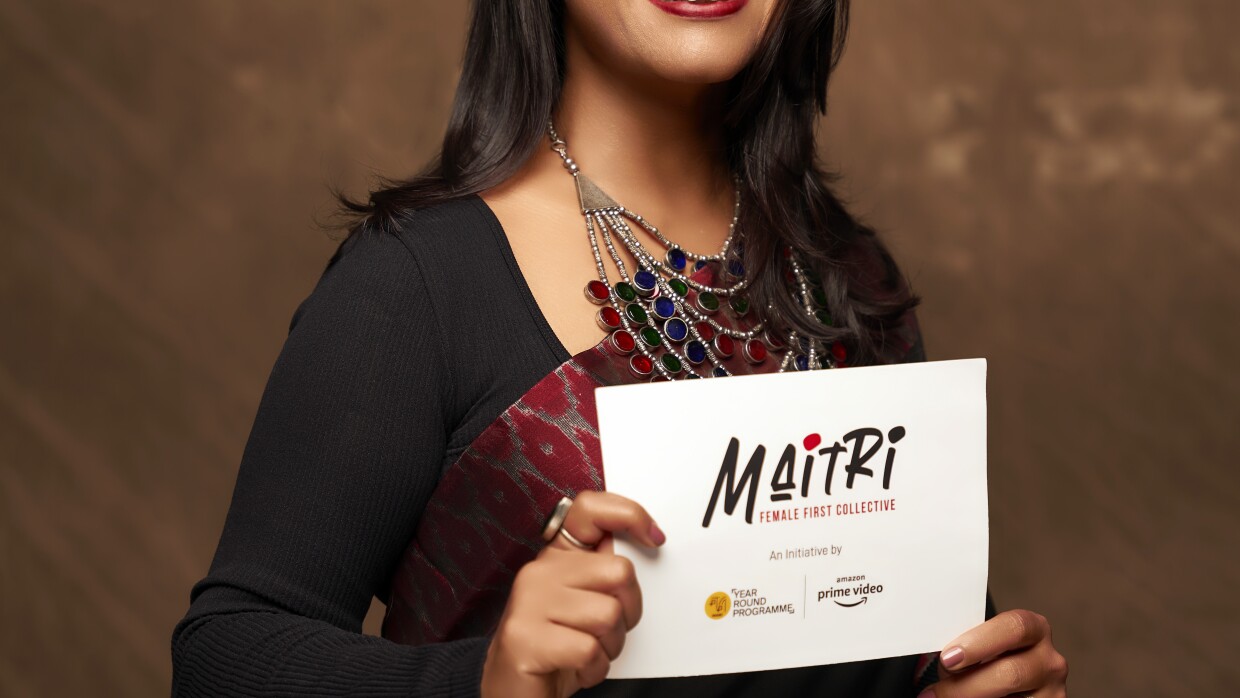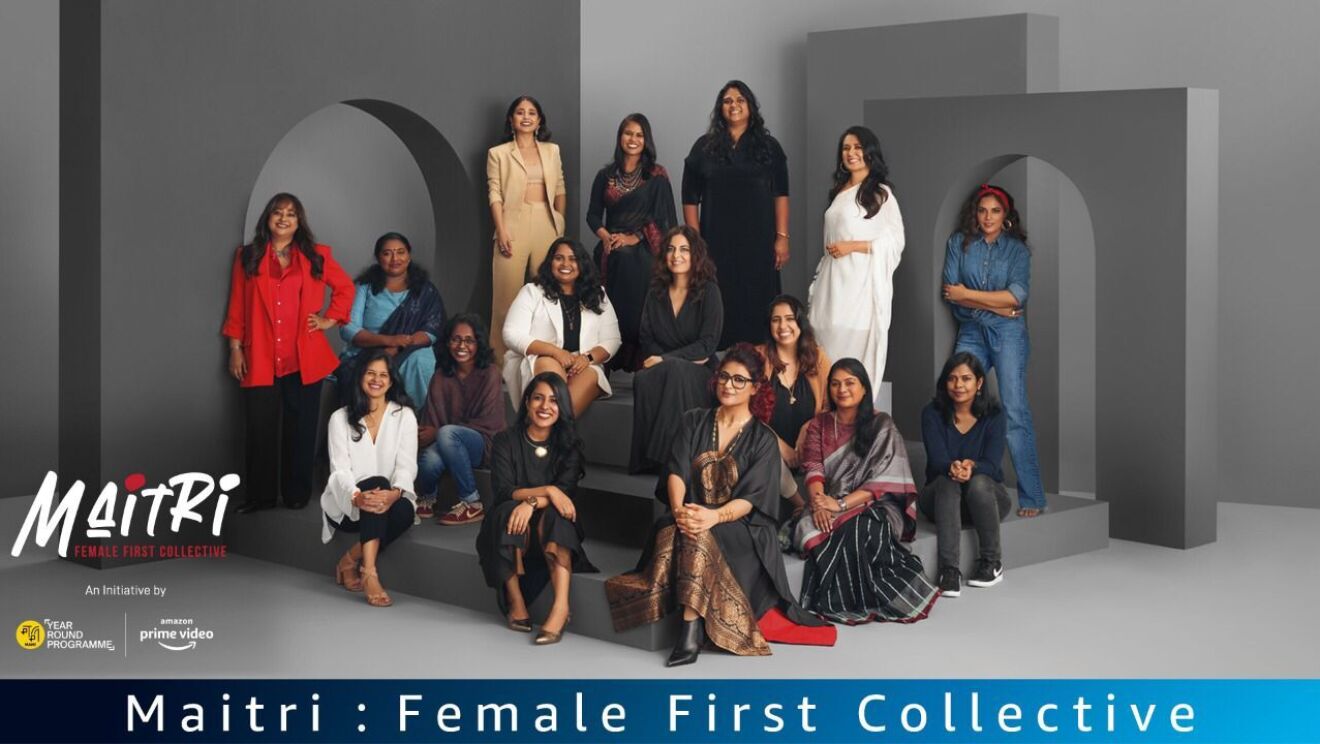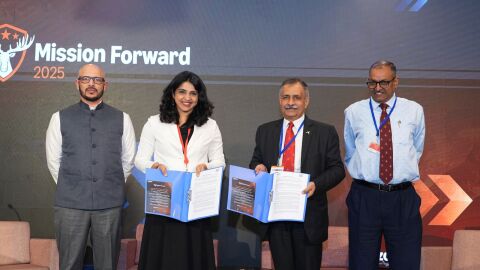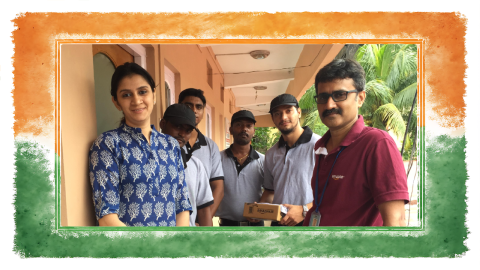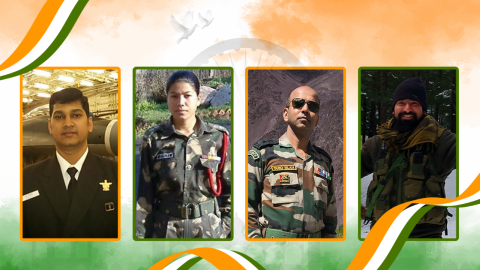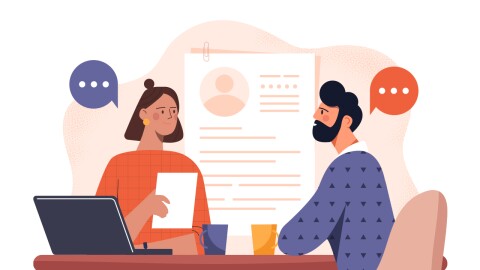“Life imitates art far more than art imitates life.” Oscar Wilde aptly sums up the power of stories to influence change in society.
Women constitute half the population, and yet stories about women, for women, and told by women are few and far between. According to a 2017 report by the Geena Davis Institute, only 1 in 10 directors in the Indian film industry are women and screen time for women is a mere 31.5% compared to 68.5% for men. This is a concerning figure given how media is no longer just a mirror of society, but is actively shaping and influencing perceptions and ideas.
On-screen representation often has a subliminal impact on people, especially the youth – it can either reinforce preconceived notions and stereotypes or provide a completely new direction of thinking. It’s important how women are portrayed on screen – are they only playing subsidiary roles and helping men achieve their dreams or do they own their narrative? For girls, in particular, lacking a role model on the big screen can be pernicious; it may discourage them from pursuing audacious ambitions. Therefore, it’s important that stories about women, narrated by women, and from their perspective, are told and amplified.
Intentions need to translate into action
Gender inequality in the film industry has been persistent and consistent; stories were written, created, directed, and produced by men and mostly for men. Therefore the female characters remained half-baked, one dimensional, peripheral characters portrayed through a distinct male gaze. Of course, there have been examples of strong female characters created by male storytellers, but not enough to move the needle. And therefore we need to open the doors for women to enter this industry. With more women helping creative teams – writers, directors, and producers – will come more female characters with more agency, better representation, and more engaging plots and themes. The result of this would be that ambition, focus, strength, and courage will begin to be associated as feminine traits leading to women being considered strong and equal members of the society.
At Amazon Prime Video, we have always prioritized telling compelling and inclusive stories from diverse voices.
At Amazon Prime Video, we have always prioritized telling compelling and inclusive stories from diverse voices. As an organization, we want to move beyond good intentions and create mechanisms that hold us accountable to a high bar. In June last year, Amazon Studios released an “inclusion policy and playbook” that is gradually being rolled out across the company.
We actively hire and engage with diverse groups across multiple touchpoints through the creative journey of a show - from roles that are in front of the camera to those behind the camera in creation and production. I strongly believe that a diverse, gender-balanced creative team can help create richer characters and tell deeper stories that resonate and live in our viewers minds long after they have watched the show. In the released slate of Amazon Originals, nearly 50% of the writers, executive producers and creative producers have been women.
I strongly believe that a diverse, gender-balanced creative team can help create richer characters and tell deeper stories that resonate and live in our viewers minds long after they have watched the show.
Breaking the bias
Due to a stark disparity between the number of men when compared to women in scriptwriting, female characters in Indian cinema, have been presented through a male perspective, resulting in the reinforcement of age-old stereotypes and gender biases. Hence, it’s important to have women in the writers’ rooms where stories take shape, characters are etched out and a new narrative can emerge. At Prime Video, close to 70% of our writers’ rooms in development have women; this is a significant step up from 50% for the shows that are already on screen. We are working to ensure that female characters in our shows have an agency – they are not just bystanders but creators of their own narrative. You will find that almost all our shows - Four More Shots Please!, Mirzapur, Made In Heaven, Bandish Bandits, The Forgotten Army, The Family Man or Mumbai Diaries – have strong, ambitious, unapologetic, real women with a strong story arc and a voice of their own!
Writing a new narrative
When I had just started out, about 20 years ago, I was made to understand that just being on a film set was my good fortune and I shouldn’t expect to be paid for the work I was putting in. Back in those days, it wasn’t surprising, if you were the only woman in the entire production crew. I was often excluded from outdoor shoots because I was a woman. The general perception back then in the industry was that taking a woman on outdoor shoots was bothersome and unnecessary. I recollect being on an outdoor shoot once - where the lead actress and I were the only women in the crew. There were no facilities - no toilets or changing rooms in a remote outdoor location - and demanding basic rights got us labelled as “difficult to work with”.
At Prime Video, close to 70% of our writers rooms in development have women.
Thankfully, with more female representation in leadership and positions of influence, the entertainment industry has evolved to a place where women are not easily dismissed and do not need to go through such experiences as they struggle to find a foothold in this industry. However, we are still quite far from what we can call an ideal scenario. A lot of people still have difficulty accepting a woman in a position of authority. I distinctly remember how once a producer had come to pitch a project. I received him and brought him to the conference room. He was buried in his phone while I waited for him to begin his story. After a long spell of silence, when I asked if he was waiting for someone to join him, he simply remarked, “your boss”! It was not easy for him to accept a woman in a position of influence and authority.
Meaningful change cannot happen overnight; it requires steadfast conviction, unflinching perseverance and unwavering patience. It’s important to be mindful and conscious, and work towards building a more inclusive and an equitable ecosystem, which is free of biases and where opportunities are given equally to all. Finally, it is imperative to achieve a critical mass in order to push and change the narrative.



